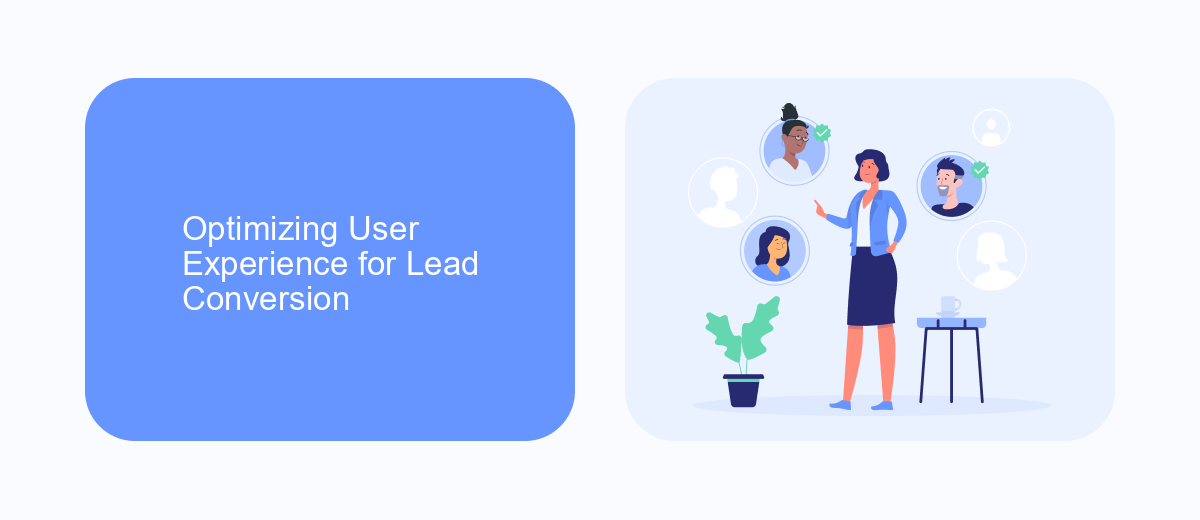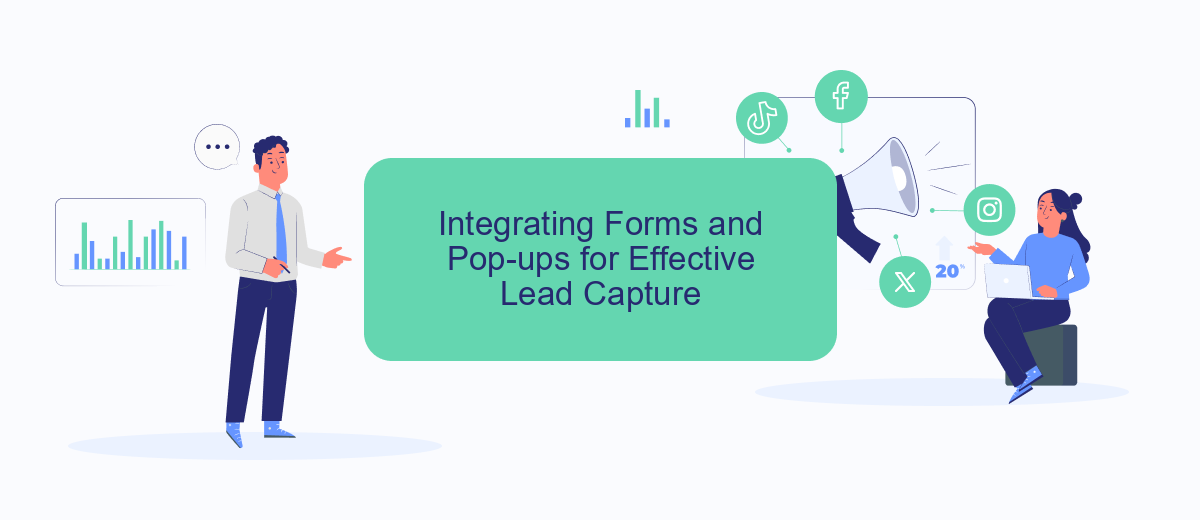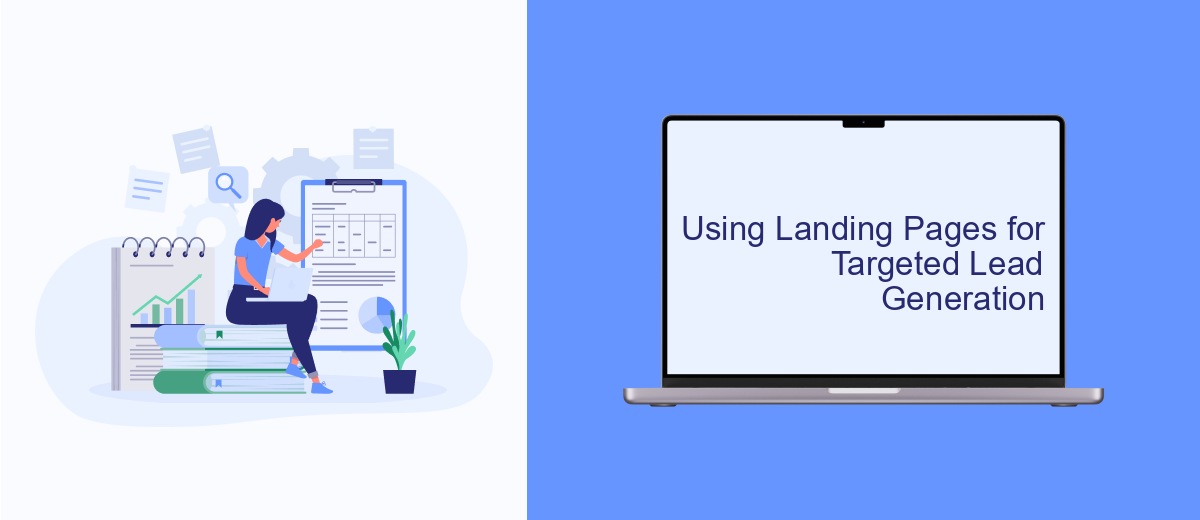In today's digital landscape, effective web design is crucial for enhancing lead generation. A well-structured, visually appealing website not only attracts visitors but also converts them into potential customers. This article explores key web design strategies that can significantly improve lead generation, from intuitive navigation and compelling calls-to-action to mobile responsiveness and fast loading times.
Introduction: Web Design's Impact on Lead Generation
In today's digital landscape, effective web design is crucial for businesses looking to improve lead generation. A well-designed website not only attracts visitors but also guides them through the conversion funnel, turning casual browsers into potential customers. By focusing on user experience, visual appeal, and functionality, businesses can significantly enhance their lead generation efforts.
- Optimized landing pages to capture visitor information
- Clear and compelling calls-to-action (CTAs)
- Responsive design for mobile users
- Fast loading times to reduce bounce rates
- Seamless integration with lead management tools like SaveMyLeads
By leveraging these web design strategies, businesses can create a more engaging and efficient user journey. Tools like SaveMyLeads can further streamline the process by automating lead capture and integration, ensuring that no potential customer is overlooked. Ultimately, a focus on web design can transform a website into a powerful lead generation tool, driving growth and success.
Optimizing User Experience for Lead Conversion

Optimizing user experience (UX) is crucial for enhancing lead conversion rates. A seamless and intuitive design can significantly reduce bounce rates and guide users through the conversion funnel. Start by ensuring your website is responsive and mobile-friendly, as a large portion of traffic comes from mobile devices. Use clear calls-to-action (CTAs) that stand out and direct users towards desired actions, such as signing up for newsletters or requesting a demo. Additionally, streamline your forms to collect only essential information, minimizing user effort and increasing completion rates.
Integrating automation tools can further enhance the user experience and improve lead conversion. Services like SaveMyLeads allow you to automate lead data collection and integration with your CRM, ensuring no potential lead slips through the cracks. This not only saves time but also provides a more personalized experience for users. By leveraging such tools, you can maintain consistent communication with leads, nurturing them through the sales funnel and ultimately boosting your conversion rates.
Integrating Forms and Pop-ups for Effective Lead Capture

Effective lead capture is crucial for any web design aimed at improving lead generation. Integrating forms and pop-ups strategically can significantly enhance your ability to capture potential leads. Forms should be simple, asking only for essential information to reduce friction and increase submission rates. Pop-ups, when used correctly, can grab the visitor's attention without being intrusive.
- Place forms on high-traffic pages such as the homepage, blog posts, and landing pages.
- Use exit-intent pop-ups to capture leads who are about to leave your site.
- Ensure your forms are mobile-friendly to capture leads from all devices.
- Test different form placements and pop-up designs to see what works best for your audience.
- Integrate your forms and pop-ups with lead management tools like SaveMyLeads for seamless data collection and follow-up.
By integrating forms and pop-ups effectively, you can streamline the lead capture process and ensure that you don't miss out on potential leads. Tools like SaveMyLeads can automate the integration process, making it easier to manage and follow up with your captured leads. Remember, the key is to balance visibility and user experience to maximize your lead generation efforts.
Using Landing Pages for Targeted Lead Generation

Landing pages are a crucial tool for targeted lead generation. By creating a focused environment, you can direct potential customers to take specific actions, such as signing up for a newsletter or downloading a resource. This specificity helps in capturing high-quality leads who are genuinely interested in your offerings.
To maximize the effectiveness of your landing pages, it's essential to tailor them to your target audience. This involves using compelling headlines, clear calls-to-action, and relevant content that addresses the needs and interests of your visitors. Personalization can significantly enhance user engagement and conversion rates.
- Use A/B testing to determine the most effective design and content elements.
- Incorporate social proof, such as testimonials and case studies, to build trust.
- Ensure your landing page is mobile-friendly and loads quickly.
- Integrate with CRM systems to automate lead management.
Services like SaveMyLeads can streamline the integration process, allowing you to connect your landing pages with various CRM and marketing tools seamlessly. This ensures that leads are automatically captured and nurtured, improving your overall lead generation strategy.


Measuring and Analyzing Web Design Performance for Lead Improvement
Measuring and analyzing the performance of your web design is crucial for improving lead generation. Start by implementing tools like Google Analytics to track key metrics such as bounce rate, session duration, and conversion rate. These metrics will help you understand how visitors interact with your site and identify areas that need improvement. Additionally, A/B testing can be used to compare different design elements and determine which ones drive more engagement and conversions.
For more advanced analysis, consider integrating specialized services like SaveMyLeads, which streamline the process of tracking and managing leads. SaveMyLeads allows you to automatically capture and organize leads from various sources, providing valuable insights into which design elements are most effective. By continuously monitoring these metrics and making data-driven adjustments, you can optimize your web design to better capture and convert leads, ultimately enhancing your overall marketing strategy.
FAQ
How can web design impact lead generation?
What are the key elements of web design that improve lead generation?
How does mobile responsiveness affect lead generation?
What role does content play in web design for lead generation?
How can I automate lead generation through my website?
If you use Facebook Lead Ads, then you should know what it means to regularly download CSV files and transfer data to various support services. How many times a day do you check for new leads in your ad account? How often do you transfer data to a CRM system, task manager, email service or Google Sheets? Try using the SaveMyLeads online connector. This is a no-code tool with which anyone can set up integrations for Facebook. Spend just a few minutes and you will receive real-time notifications in the messenger about new leads. Another 5-10 minutes of work in SML, and the data from the FB advertising account will be automatically transferred to the CRM system or Email service. The SaveMyLeads system will do the routine work for you, and you will surely like it.
